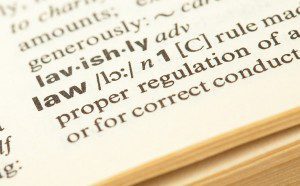Virginia Federal Fraud Lawyer
 If you are facing federal fraud charges, a Virginia federal fraud lawyer can help you understand the nature of the case against you and develop an appropriate defense strategy. Federal fraud carries serious consequences and requires a careful approach to navigate the federal court system. Contact a federal fraud lawyer in Virginia today.
If you are facing federal fraud charges, a Virginia federal fraud lawyer can help you understand the nature of the case against you and develop an appropriate defense strategy. Federal fraud carries serious consequences and requires a careful approach to navigate the federal court system. Contact a federal fraud lawyer in Virginia today.
Why Work with a Virginia Federal Fraud Attorney?
There are many advantages with choosing private representation over other options. One of the primary reasons for opting to work with a private law firm is the investigative resources available to your Virginia federal fraud attorney. In addition to going over your case carefully to ensure that all evidence has been handled properly, your Virginia federal fraud lawyer can:
- Act as a negotiation during any plea bargaining meetings
- Litigate on your behalf in court, protecting your rights and interests
- Keep you apprised of any changes in your case
- Prepare you thoroughly for any court appearances
If you call our firm today, we’ll conduct an initial consultation that will help us to determine how else a Virginia federal fraud lawyer may serve you.
What is Fraud?
Fraud is the obtaining of property or money using false documents, misinformation, or general deception. It is not simply theft, because it involves some kind of deceptive scheme rather than the general use of force associated with theft. The scheme does not actually have to succeed in its intended purpose in order for a charge of fraud to be filed.
Types of Fraud
The federal criminal code covers numerous types of fraud, with varying penalties based on the circumstances of each offense. Although a Virginia federal fraud lawyer can explain them to you in more detail, the following are some of the most common types of fraud.
- Bank Fraud: Bank fraud employs deceptive means to obtain money from a bank or other financial institution. It often involves gaining illegal access to bank accounts using checks or online banking. It could also involve the illegal actions of someone employed by the financial institution using his or her employee access to acquire funds,among other illicit financial schemes.
- Mail and Wire Fraud: Mail and wire fraud involve fraudulent activities that transpire through the US postal service or over other communication devices including telephones, cell phones, television, radio, the Internet or any other type of interstate or international communication system. Mail and wire fraud acts as an inclusive term for many kinds of fraudulent activity, since such activity often transpires electronically.
- Securities and Commodities Fraud: Securities and commodities fraud involves the buying, selling, or trading of stocks, bonds, or other securities or commodities. Included in this category are a wide range of false investment schemes (such as Ponzi or pyramid schemes) and insider trading (where a person trades stock based on information not known to the public).
- Tax Fraud–Tax fraud occurs when someone willfully seeks to avoid paying taxes to the federal government by not filing a tax return, overestimating expenses, or failing to report your correct income.
- Medicaid and Medicare Fraud–This type of fraud seeks to obtain health care payments or benefits under false pretenses. It may involve overbilling for health services or performing unnecessary procedures, among other illicit activities.
Other types of fraud include insurance fraud, credit card fraud, welfare fraud, fraud against the government, and perjury.
Penalties for Fraud
Those found guilty of federal fraud charges may face the following penalties:
- Bank Fraud: Bank fraud can result in a fine of up to $1,000,000, up to 30 years in prison, or both.
- Mail and Wire Fraud: A single count of mail or wire fraud can result in a $250,000 fine and up to 20 years in prison, or both. Penalties increase for each offense. If the fraud involved a financial connection to or benefit from a presidential state of emergency or disaster, the penalties increase to $1,000,000 and up to 30 years in prison, or both.
- Securities and Commodities Fraud: Depending on the circumstances of the case, securities and commodities fraud can result in a fine of $10,000 up to $1,000,000 or more, a jail sentence of up to 25 years in prison, or both.
- Tax Fraud: A single count of tax fraud may result in a $100,000 fine and 5-year jail sentence. Penalties can increase significantly based on the circumstances of the case.
- Medicaid and Medicare Fraud: A conviction for federal healthcare fraud may result in a fine of up to $500,00 per offense and jail time of up to 20 years per offense. If the fraud resulted in the death of an individual, the penalty may include a life sentence in prison.
In addition to fines and prison time, individuals convicted of fraud may also be required to pay restitution to the individuals or institutions that were the objects of the fraud. Restitution consists of the amount of money lost as a result of the fraudulent activity.
Speak with a Virginia Federal Fraud Lawyer
Federal fraud charges carry significant, life-altering penalties and require the knowledge and experience of a Virginia federal fraud lawyer to represent your interests. If you face any of these fraud charges, you need the assistance of an experienced attorney to develop a strong defense, present your case in court, and ensure your right to a fair trial.






